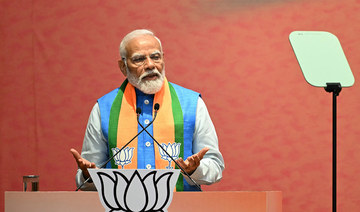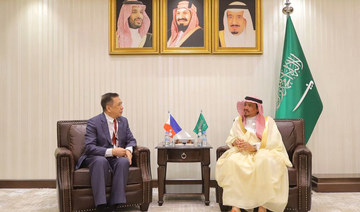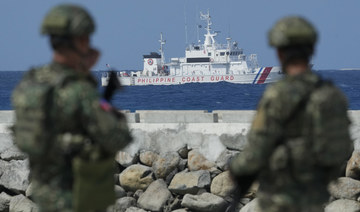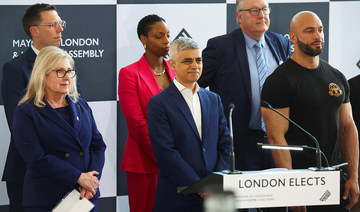DUBAI: When news of a mass shooting at two mosques in Christchurch, New Zealand, broke on March 15 last year, New Zealanders around the world were left in a state of shock.
Recalling the day, Ma’an Jalal, an Iraqi Kiwi who lives in Dubai, said he “couldn’t believe what he was hearing.”
“Having grown up in New Zealand, I know what the people are like, and we don’t have this kind of mentality,” said Jalal.
“It was really sad that something that happens everywhere else around the world somehow made its way to New Zealand, which is a very peaceful place,” he added.
After what Prime Minister Jacinda Ardern described as one of New Zealand’s “darkest days,” the world came together in solidarity with the country as different social groups — Arabs, Muslims, Kiwis and others — united their voices to make a statement against hate.
For this special issue, Arab News met more than a dozen people at Kiwi-owned Raw Coffee in Dubai to discuss how the tragic events strengthened their ties.
See how Kiwis, Arabs in #Dubai got together with @ArabNews at @rawcoffee to talk about the bonds that were forged in the wake of last year’s #Christchurch attacks: #WeAreOne pic.twitter.com/jmSbny7W6a
— Arab News (@arabnews) March 14, 2020
One of the cafe owners, Kim Thompson, who has been living in the UAE for more than two decades, said that she couldn’t “make sense” of the hatred displayed by the gunman who opened fired at the mosques, killing 51 people.
Thompson has embraced both the Arab and Kiwi worlds, working with Emiratis as well as having an Emirati son-in-law.
“I was horrified. I would hate for other people to think that New Zealand was a racist country,” she said.
Cameron Thomas, who lives in Dubai with his partner Charlotte Endres and their 13-year-old daughter Isabella Thomas, said: “My mother lives in Christchurch. My sister lives there, too. They went to the first Friday prayers after the massacre and saw that it was just amazing. People showed such empathy and compassion at the memorial services.
“The hate was brought to our country; it was not made in our country. New Zealand has this image of a peaceful nation. It’s not us. It’s not who we are.
“His (the gunman’s) agenda was against Muslims, but he attacked human beings. He attacked New Zealand. He attacked our values.”
In response to the attack, women around the country donned headscarves to express support for the Muslim community. Mosques were inundated with messages of solidarity, using the words “We Are One.”
Ghadair Al-Shemari, a Kuwaiti-born Kiwi who set up a training institute in Dubai with an Emirati-Kiwi colleague, said the response to the attacks was a “Kiwi thing.” She said she wasn’t surprised by the unity demonstrated by the country since New Zealanders have always been a caring group of people.
“Once I got sick and I was really amazed. My neighbors would come and check on me. They would ask what I wanted, what I needed and bring me food. In New Zealand, our friends are our family,” she said.
Al-Shemari said the attacks opened “deeper doors” for people in New Zealand to “learn about each other.”
“It brought an opportunity to learn about our similarities and embrace our differences,” she said.
The two worlds have much in common, according to Al-Shemari, who was a Muslim community leader in New Zealand. The island nation has a significant Muslim population, and there are similarities between the UAE and New Zealand, with both viewed as safe, diverse and open places.
Safety and diversity were among the reasons Jane Simei, an American who gave birth to her first child in New Zealand, thought it was a good place to raise a family.
“For us, one of the appeals of going to New Zealand was just how safe it was, and really how culturally unified they are as a country. They have strong ethics, morals and values,” she said.
“It was much more shocking for us to have the attack happen in a place like that than from where we’re from,” she added.
Simei praised the New Zealand prime minister’s handling of the situation: “Her response really held everyone together. When something like that happens, there’s going to be a sense of fear. She did a wonderful job quelling that fear, saying this isn’t us and we’re going to unify against this hatred.”
Matt Toogood, one of the owners of Raw Coffee, was awe-struck when, in the wake of the massacre, an imam in his Dubai neighborhood came up to him at his house and gave him a hug.
Emirati Abdulla Al-Manari, who studied and lived in New Zealand for nine years, echoed the same experience. “Something beautiful flourished out of this tragedy.”
“It was a tragedy for the Muslim community, but humanity joined at that stage. It’s a beautiful example — people should learn from what New Zealand did.”

























